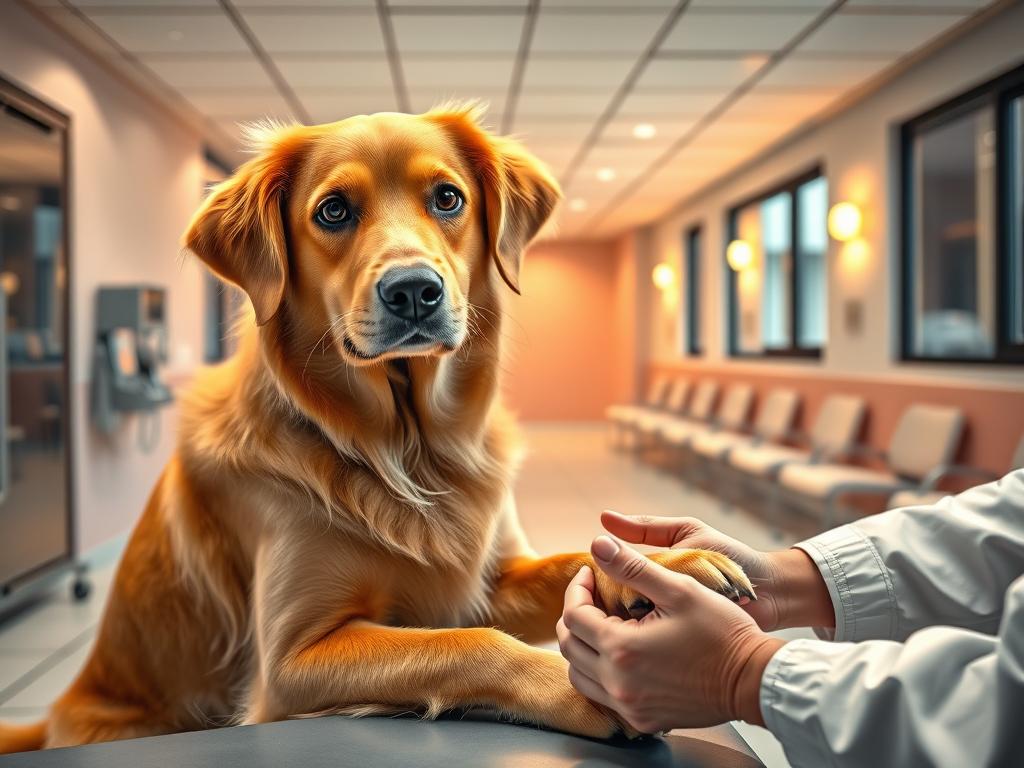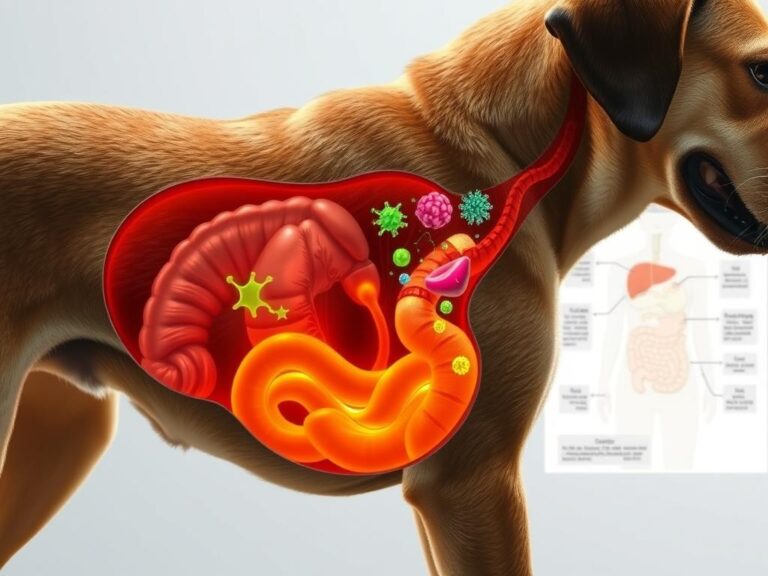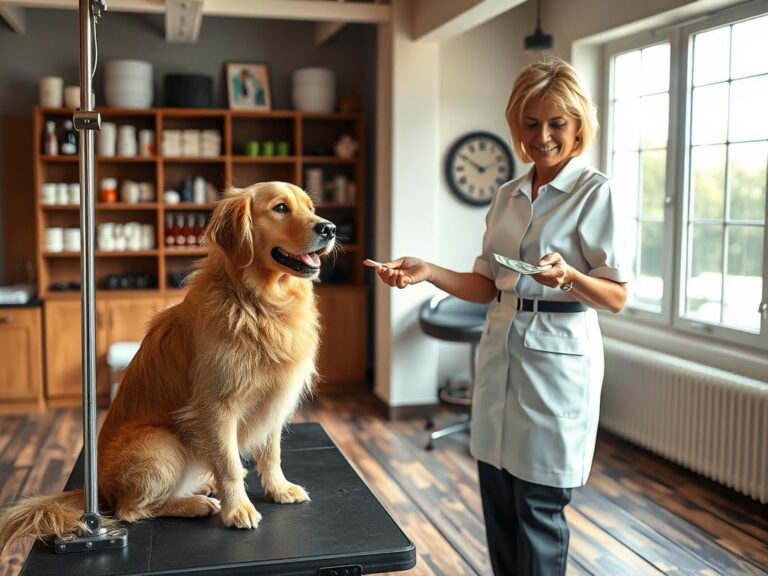How Often Should You Take Your Dog to the Vet?
Regular veterinary care is crucial for maintaining the health and happiness of your dog. A well-planned dog vet visit frequency ensures your pet receives timely vaccinations, check-ups, and necessary treatments.
For puppies, establishing a puppy vet schedule is vital for monitoring their growth and addressing any health issues early on. As your dog matures, the frequency of vet visits may change, but regular check-ups remain essential.
Understanding the factors that influence the frequency of vet visits can help you keep your dog healthy. This article will explore these factors and provide guidance on maintaining an appropriate vet visit schedule for your dog.
The Importance of Regular Veterinary Care
Regular veterinary care plays a vital role in preventing health issues in dogs. By maintaining a consistent schedule of vet visits, dog owners can ensure their pets receive timely vaccinations, health checks, and necessary interventions.
Preventive Health Benefits
Preventive care is a cornerstone of preventive dog care. Regular check-ups help in early detection of potential health problems, allowing for prompt treatment and preventing minor issues from becoming severe. This proactive approach not only improves the dog’s quality of life but also reduces the financial burden on the owner.
Building a Relationship with Your Veterinarian
Establishing a dog veterinarian relationship is crucial for the long-term health of your dog. A veterinarian who is familiar with your dog’s history can provide more personalized advice and care, tailoring their recommendations to your dog’s specific needs and health status.
By fostering this relationship, dog owners can gain valuable insights into their dog’s behavior, nutrition, and health, ensuring they provide the best possible care.
How Often Should I Take My Dog to the Vet? A General Schedule
Understanding the right vet visit schedule for your dog can significantly impact their overall well-being. The frequency of these visits varies based on the dog’s age, health status, and lifestyle. For a comprehensive guide on vet visits, you can refer to resources like MarketWatch.
Puppy Veterinary Schedule (0-12 months)
Puppies require a series of vet visits during their first year. These visits are crucial for vaccinations, monitoring growth, and detecting any potential health issues early.
First Vet Visit Timeline
The first vet visit should occur within the first few days of bringing a new puppy home, typically around 8 weeks of age. This initial visit sets the stage for the puppy’s health care plan.
Vaccination Schedule for Puppies
Puppies need a series of vaccinations to protect them from diseases. The core vaccinations are typically administered in a series of shots given at 8, 12, and 16 weeks of age.
Spaying and Neutering Timing
Spaying or neutering is usually recommended between 4 to 6 months of age. This procedure can prevent certain health issues and undesirable behaviors.
Adult Dog Vet Visit Frequency (1-7 years)
Adult dogs generally require annual check-ups. However, the frequency may vary based on the dog’s health, breed, and lifestyle factors.
Senior Dog Veterinary Care (8+ years)
As dogs age, their health needs change. Senior dogs typically require more frequent vet visits, often every 6 months, to monitor age-related health issues and manage chronic conditions.
Regular veterinary care is essential for maintaining your dog’s health throughout their life. By following the recommended vet visit schedule, you can help ensure your dog lives a long, healthy life.
Essential Health Checks and Vaccinations
Vaccinations and health checks are vital components of dog care, helping prevent diseases and detect health issues early. Regular veterinary visits ensure your dog stays up-to-date on necessary vaccinations and health screenings, tailored to their age, lifestyle, and health status.
Core Vaccinations and Their Schedule
Core vaccinations are essential for all dogs, protecting against severe diseases such as rabies, distemper, and parvovirus. The typical schedule for core vaccinations includes initial vaccinations followed by boosters, usually administered every 1-3 years, depending on the vaccine and local regulations. For instance, the rabies vaccine is often mandated by law and given every 1-3 years.
Non-Core Vaccinations Based on Lifestyle
Non-core vaccinations are recommended based on a dog’s lifestyle and risk factors. For example, dogs that frequent dog parks or boarding facilities may require the Bordetella vaccine to protect against kennel cough. Similarly, dogs that spend a lot of time outdoors may benefit from the Lyme disease vaccine, especially in areas where ticks are prevalent.
Routine Health Screenings by Age
Routine health screenings are crucial for maintaining your dog’s health, with the types of screenings varying by age.
Blood Work and Urinalysis
Blood work and urinalysis are fundamental diagnostic tools that help identify underlying health issues, such as diabetes, kidney disease, or infections. These tests are particularly important as your dog ages.
Dental Examinations
Dental examinations are vital for detecting dental diseases, which are common in dogs. Regular dental care can prevent pain, infection, and other complications.
Parasite Prevention
Parasite prevention is a critical aspect of dog care, protecting against fleas, ticks, and worms. Regular use of preventative medications can significantly reduce the risk of parasite infestations.
By combining vaccinations with regular health screenings, you can ensure your dog leads a healthy, happy life. Consult with your veterinarian to determine the best health and vaccination plan tailored to your dog’s specific needs.
When to Schedule Immediate Vet Visits
Understanding the signs that require immediate veterinary attention can be lifesaving for your dog. While regular check-ups are crucial, some situations demand urgent care. Knowing when to seek help can significantly impact your dog’s health outcomes.
Emergency Symptoms That Can’t Wait
Certain symptoms indicate that your dog needs immediate veterinary attention. These include severe injuries, difficulty breathing, and signs of extreme pain or distress.
Digestive and Respiratory Emergencies
Symptoms like vomiting blood, severe diarrhea, or difficulty breathing require immediate action. These could be signs of serious conditions such as gastrointestinal obstruction or respiratory distress.
- Vomiting or diarrhea that persists
- Difficulty breathing or rapid breathing
- Coughing up blood or severe coughing
Injury and Trauma Signs
If your dog has been in an accident or shows signs of injury, such as limping, swelling, or bleeding, seek veterinary care immediately. Trauma can lead to internal injuries that aren’t immediately visible.
“Dogs often hide their pain, so it’s crucial to monitor their behavior closely after any traumatic event.”
Behavioral Changes That Warrant Veterinary Attention
Sudden changes in behavior can be indicative of underlying health issues. If your dog becomes aggressive, lethargic, or exhibits unusual behaviors, it’s essential to consult with a veterinarian.
| Behavioral Change | Possible Health Issue |
|---|---|
| Increased aggression | Pain or neurological issues |
| Lethargy | Infection, organ failure, or cancer |
| Unusual vocalization | Anxiety, pain, or distress |
After-Hours Care Options
If your dog needs immediate care outside regular veterinary hours, consider after-hours care options. Many veterinary clinics offer emergency services or can refer you to an emergency animal hospital.
It’s also a good idea to keep the contact information for local emergency veterinary services handy. Being prepared can save valuable time in an emergency.
Factors That May Affect Your Dog’s Vet Visit Frequency
Understanding the various elements that affect your dog’s health can help you determine the ideal vet visit frequency. While a general schedule provides a foundation, several factors can influence the need for more or fewer visits.
Breed-Specific Health Considerations
Different breeds have unique health predispositions. For instance, larger breeds like Great Danes are more prone to joint issues, while smaller breeds like Chihuahuas may have dental problems. Being aware of your dog’s breed-specific health risks can help you tailor their vet visit schedule.
Pre-existing Health Conditions
Dogs with pre-existing health conditions, such as diabetes or heart disease, may require more frequent vet visits to monitor their condition and adjust treatments as necessary. Regular check-ups can help manage these conditions effectively.
Lifestyle and Environmental Factors
Your dog’s lifestyle and environment also play a significant role in determining vet visit frequency. For example, dogs that spend a lot of time outdoors may need more frequent checks for parasites like ticks and fleas, while dogs exposed to other dogs may require more frequent vaccinations.
Age-Related Health Changes
As dogs age, their health needs change. Senior dogs, for instance, may need more frequent vet visits to monitor age-related issues such as arthritis or declining organ function. Understanding these age-related changes can help you adjust your dog’s vet visit schedule accordingly.
By considering these factors, you can work with your veterinarian to create a personalized vet visit schedule that meets your dog’s unique needs, ensuring they receive the best possible care.
Modern Veterinary Care Options
Modern veterinary care has expanded beyond traditional clinic visits, providing dog owners with diverse choices for their pets’ health and wellness. This evolution in care options means that dog owners can now select the most appropriate and convenient services for their pets, enhancing the overall quality of care.
Wellness vs. Sick Visits
Veterinary visits can be categorized into wellness visits and sick visits. Wellness visits are routine check-ups that focus on preventive care, such as vaccinations, health screenings, and nutritional advice. These visits are crucial for maintaining a dog’s health and detecting potential issues early. On the other hand, sick visits are for when your dog is unwell or injured, requiring diagnostic and treatment services.
Telemedicine and Virtual Vet Consultations
The rise of telemedicine for dogs has transformed the way pet owners seek veterinary advice. Virtual consultations allow dog owners to receive professional guidance remotely, which is particularly useful for non-emergency issues or follow-up appointments. This service can save time and reduce stress for both pets and owners.
Mobile Veterinary Services
Mobile vet services bring the vet to your doorstep, offering convenience and reduced stress for dogs that are anxious in traditional clinic settings. These services often provide a range of care, from routine check-ups and vaccinations to more complex medical procedures, all within the comfort of your home.
By embracing these modern veterinary care options, dog owners can ensure their pets receive comprehensive and convenient care tailored to their individual needs.
Conclusion
Regular veterinary care is crucial for maintaining your dog’s overall health and detecting potential issues early. By establishing a consistent vet visit schedule tailored to your dog’s needs, you can ensure they receive the necessary care to thrive.
A dog vet care summary highlights the importance of preventive health benefits, core vaccinations, and routine health screenings. Regular vet visits importance cannot be overstated, as they allow veterinarians to monitor your dog’s health and address any concerns promptly.
By considering factors such as age, breed, and lifestyle, you can work with your veterinarian to create a personalized care plan. This plan will help you stay on track with recommended vet visits, ensuring your dog receives the best possible care.
Ultimately, prioritizing regular vet visits is a key aspect of responsible dog ownership. By doing so, you can help your dog live a long, healthy, and happy life.





